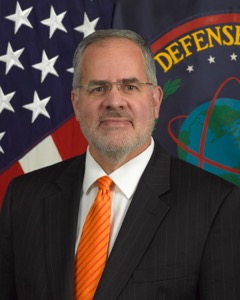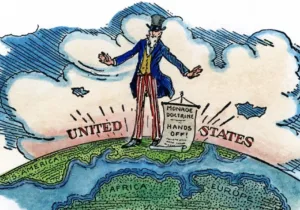David R. Shedd
My views on the refugee crisis are shaped around a couple of Biblical principles which are actually in tension with each other: we are to show compassion toward the destitute and we are to pursue justice, which includes the sovereign’s responsibility to maintain the peace and order of those they rule.
The biblical norm of compassion and mercy toward those less fortunate than ourselves is summarized in the mandate to love our neighbor as we love our self. One way we have shown that mercy for the Syrian refugees is by our already having given $4.5 billion toward their care in refugee camps.
The other Biblical principle of justice, sprinkled throughout a number of Biblical passages, is summarized in the calling that as believers in Christ we are to apply justice at the same time as we demonstrate mercy (Micah 6:8). The justice aspect attends to our valid security concerns – which are very legitimate concerns. Unlike other accommodations made by the U.S. for incoming refugees, there is no good identifying data on many of the would-be resettled refugees coming from Syria. Even in Iraq, we were able to run checks based on data we obtained in the various Saddam-era files. Now, in the best case, the average Syrian wanting to come to the U.S. left Syria for Turkey, Jordan, or Lebanon with little to no documentation. In the worst case, they intentionally entered neighboring states with falsified documentation.
Jesus called us to be shrewd in responding to known or potential deception. What this means for us now is that it is no breach of Christian responsibility to ensure we maintain a commitment to justice even as we demonstrate our compassion. This is in contradistinction to those who abandon their duty toward justice as they naively insist we be about compassion over all other considerations.
Here is how it gets practical very quickly: intelligence (ours and that of our allies) and the various law enforcement communities involved in this crisis do not have the means to cross check data when it is non-existent in any other data base. The due diligence background checks on individuals that could pose a terrorism threat to us in coming to the U.S. in refugee channels must be undertaken with extraordinary care and with far greater effort out in the region. Transparency is key as well. The idea that the Administration is only talking about bringing in orphans and women to the U.S. is highly misleading. Moreover, not all at-risk groups are being treated with equity. Incredibly, the Syrian Christian portion of refugees being looked at coming to the U.S. among the current pool is highly underrepresented at approximately 2% when in fact they represent about 10% of the population of Syria. In contrast, a protected class – the LGBT Syrians – are totally disproportionate in their representation in the would-be refugee grantee status. This double-standard is just one example of the incredible manipulation of the facts by this Administration.
In conclusion, we have been and continue to be a nation built on the premise of compassion but security simply cannot be ignored. A strategic pause is needed before accepting the first 10,000 Syrian refugees in order to answer myriad security related questions, and if that takes a long time, so be it. Compassion can continue to be shown in other ways.
In the meantime, I place the refugee problem at the President’s own doorstep as he refused to do more about Syria in 2011-2012 when much of the carnage there could have been prevented by showing strong leadership. He punted, and we are today where we are because of his cowardly and counter leadership actions in Syria, Iraq, Libya, and around the globe.
David R. Shedd held a variety of top level positions in the U.S. intelligence community including as acting director of the Defense Intelligence Agency until January 2015 when he retired from government service after nearly 33 years. He is now a national security consultant, a visiting distinguished fellow in the Heritage Foundation’s Davis Institute for National Security and Foreign Policy and Adjunct Professor at Patrick Henry College.







 Sponsor a student for Christianity & National Security 2024
Sponsor a student for Christianity & National Security 2024